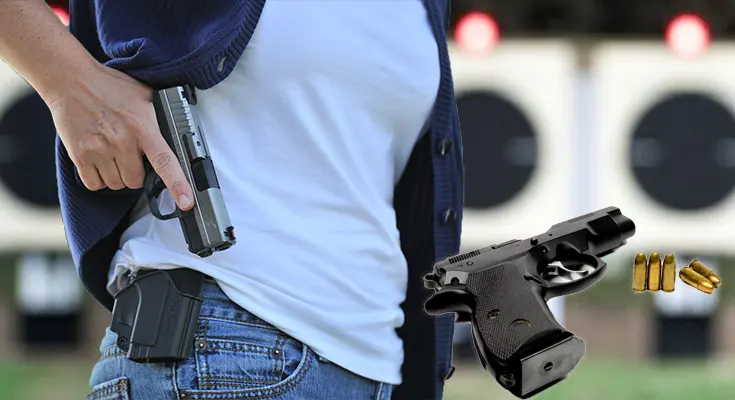When considering the purchase of a personal defense pistol, there are multiple factors to weigh in order to ensure that you make a decision that is safe, responsible, and suitable for your individual needs. Selecting the right firearm for personal defense is a significant decision that requires thorough consideration of various aspects such as legal requirements, personal comfort and skill level, the pistol’s characteristics, and situational needs. Here we will delve into the crucial factors you should consider before making your purchase.
1. Legal Requirements and Regulations
Before purchasing a personal defense pistol, it is paramount to understand the legal framework governing firearm ownership and use in your area. Gun laws vary significantly from one jurisdiction to another, encompassing aspects like ownership eligibility, carry permits, and registration requirements. Ensuring compliance with these laws is the first step in the responsible acquisition of a firearm. Additionally, some regions may have restrictions on certain types of firearms or magazine capacities, which could influence your choice of pistol.
2. Personal Comfort and Proficiency
Choosing a pistol that you are comfortable handling is crucial. This includes considering the firearm’s ergonomics, weight, and size to ensure it fits your hand well and you can operate it confidently. A pistol that is too large or too small for your hand can be difficult to control, potentially affecting accuracy and safety. Similarly, your proficiency with firearms, or willingness to become proficient, should guide your choice. Beginners may prefer firearms with simpler mechanisms, while experienced users might opt for advanced features, as offered by the HK P30.
3. Purpose and Use
Clearly define the primary purpose of the pistol. Is it for home defense, concealed carry, or another specific use? The intended use can significantly influence the type of pistol you choose. For instance, a compact model might be preferable for concealed carry due to its ease of concealment and lighter weight, whereas a larger pistol could be more suitable for home defense due to its potential for higher accuracy and capacity.
4. Caliber and Ammunition
The caliber of the pistol is a critical consideration, as it affects both the stopping power of the firearm and the shooter’s ability to handle recoil. Common calibers for personal defense include 9mm, .40 S&W, and .45 ACP, each with its own balance of power and recoil. Consideration of ammunition availability and cost is also important, as these factors will affect ongoing practice and readiness.
5. Reliability and Maintenance
A personal defense pistol must be reliable, as it may be used in life-threatening situations where failure is not an option. Researching and selecting a firearm known for its dependability is crucial. Additionally, consider the maintenance requirements of the pistol. A firearm that is easier to clean and maintain can ensure its longevity and reliability over time.
6. Safety Features
Examine the safety features of the pistol, such as manual safeties, trigger safeties, and firing pin safeties. These features can provide an added layer of security, especially for less experienced shooters or those with children in the home. Understanding how to engage and disengage these safety mechanisms is essential for safe firearm handling.
7. Training and Practice
Owning a firearm for personal defense also implies a commitment to regular training and practice. Familiarity with your firearm’s operation, practicing shooting techniques, and understanding self-defense laws are all critical for responsible ownership. Consider whether you have access to training facilities and are willing to dedicate time and resources to develop and maintain your skills.
8. Cost and Budget
The cost of the pistol itself is just one part of the overall expense associated with firearm ownership. Consideration must also be given to the costs of ammunition, accessories (such as holsters and safes), and training. Setting a budget that accounts for these additional expenses is important to ensure that you can afford not only to purchase but also to responsibly own and maintain your firearm.
9. Insurance and Liability
Investigating insurance options and understanding potential liabilities associated with firearm ownership can protect you financially and legally. Some insurance policies cover damages or legal fees stemming from the defensive use of a firearm, providing peace of mind to responsible gun owners.
Conclusion
Purchasing a personal defense pistol is a decision that should not be taken lightly. It involves careful consideration of legal, practical, and personal factors to ensure that the firearm you choose is the right fit for your specific needs and circumstances. By taking the time to research and reflect on these factors, you can make an informed decision that enhances your personal safety and security while adhering to the principles of responsible firearm ownership.





